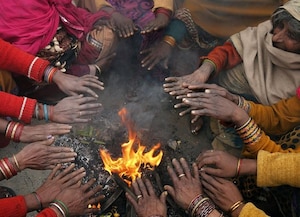Monkeypox Virus Spreading In Britain Via Community Transmission, Says Senior Adviser
When asked if community transmission was now the norm in the United Kingdom, UKHSA chief medical adviser Susan Hopkins responded, "absolutely."

New Delhi: A health expert said on Sunday that Britain is witnessing daily outbreaks of the uncommon monkeypox virus that are unrelated to any trip to West Africa, where the disease is widespread. After registering 20 incidents on Friday, the UK Health Security Agency (UKHSA) stated additional numbers will be revealed on Monday, news agency AFP reported.
When asked if community transmission was now the norm in the United Kingdom, UKHSA chief medical adviser Susan Hopkins responded, "absolutely."
"We are finding cases that have no identified contact with an individual from West Africa, which is what we've seen previously in this country," she informed BBC TV.
"We are detecting more cases on a daily basis."N
Hopkins would not confirm reports that one person was in intensive care, but claimed the outbreak was localized in metropolitan areas and among homosexual or bisexual males.
"The risk to the general population remains extremely low at the moment, and I think people should be aware of it," she stated, adding that symptoms would be "relatively mild" for most individuals.
On May 7, the first UK case was revealed, involving a patient who had recently returned from Nigeria. In Europe and North America, the illness is also spreading.
Monkeypox can be spread by contact with an infected person's skin lesions and droplets, as well as shared goods such as beds and towels.
Fever, muscular pains, enlarged lymph nodes, chills, tiredness, and a chickenpox-like rash on the hands and face are among the symptoms. They normally go away in two to four weeks.
There is no particular therapy, however smallpox vaccine has been shown to be around 85% effective in preventing monkeypox.
Education Secretary Nadhim Zahawi stated that the UK government had already begun stockpiling smallpox vaccine.
"We're taking it very, very seriously," he told the BBC.
(With Inputs From AFP)





































